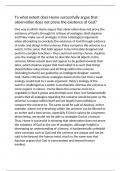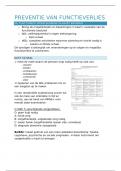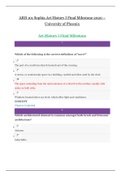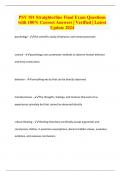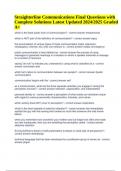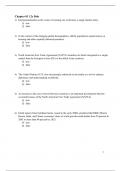Essay
To what extent does Hume successfully argue that observation does not prove the existence of God?
- Institution
- OCR
An essay which assesses the extent to which Hume successfully argues that observation does not prove the existence of God as taught under OCR A Level RS H573/01 Philosophy of Religion
[Show more]
